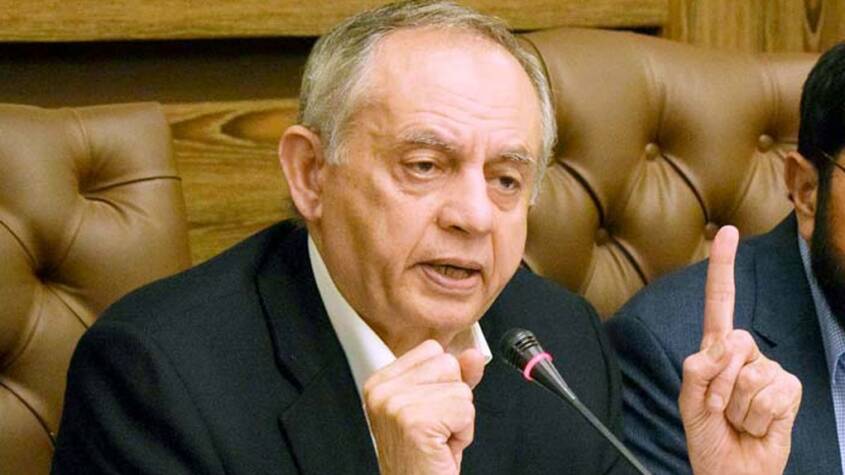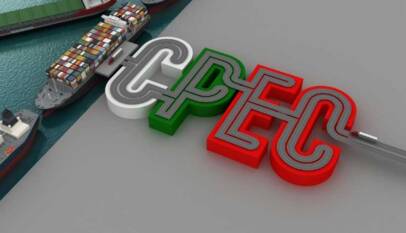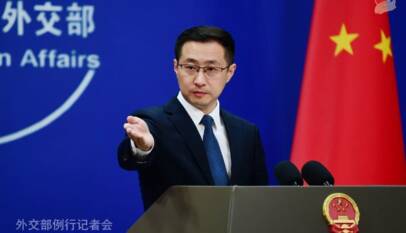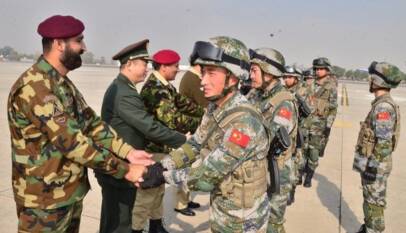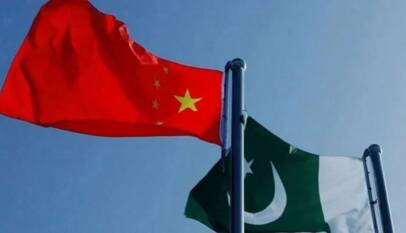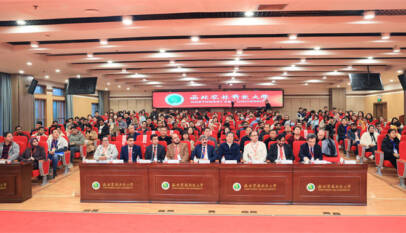Prime Minister Khan Closely Monitors Progress on Development of SEZs
Federal Gov't advisor for Commerce, Textile and Industry, Razak Dawood briefed media on the current economic scenario of Pakistan. In a question on the progress of Special Economic Zones (SEZs) he replied that Govt had approved 12 SEZs, the Raskhai Economic Zone is under construction and PM himself is closely watching the progress on all other Economic Zones weekly. Dawood is optimistic that after being functional soon, these zones will open avenues for investors domestic or overseas. He stated that provision of necessary infrastructure had been the logjam in the operationalization of SEZs. Pakistan has successfully built the energy generation capacity, and now govt only needs investment in transmission and distribution system.
Challenges, economic, political and diplomatic, continue to be too grave to allow any space for complacency but the trade data for July, the first month of the current fiscal year, did put a faint smile on the faces of the harried flock of the government’s trade team.
No one expects an economic turn-around during the current fiscal year. But early signs of course corrections towards more realistic, market-based, dependable fundamentals are said to be emerging as the fog of uncertainty subsides post-International Monetary Fund (IMF) deal.
The improvement in trade data (exports up 14 per cent and imports down 18pc in July 2019 over July 2018 and the monthly trade gap halved from $2 to $1 billion), is projected as an early sign of the success of the stabilisation package put in place by the PTI government (see tables for details).
The Financial Action Task Force (FATF) and IMF reports are important but the country is moving slowly and persistently in the right direction and beyond the current difficult patch, where necessary readjustments had to be made, the future is said to be bright and promising.
Beaming Razzak Dawood’s optimism sounded almost delusional when he painted a rosy picture amidst rising inflation, falling incomes and shrinking economy
After a long lull, the government now wishes to enter the next industrialisation phase of China-Pakistan Economic Corridor (CPEC) with a new zeal. Efforts are said to be afoot to this end as Islamabad prepares to receive a global investors’ delegations to identify common ground and tie loose ends.
The Adviser to Prime Minister for Commerce, Textile, Industries, Production and Investment Abdul Razzak Dawood, a successful businessman and an ardent champion of the free market, is a key member of the PTI’s economic dream team. He did not grow in PTI folds but that did not come in the way of landing a cushy key spot in the government’s hierarchy.
Since assuming office he seems to have served well for both the government and the private sector. His inclusion in the top tier of the government gave the PTI a direct access to the core of influential circuit of the business class. The business elites trust him to be someone who understands and speaks their language and puts their case across at the halls of power in Islamabad.
Beaming Razzak Dawood’s optimism sounded almost delusional when he sat down with Dawn Business and Finance team in Karachi last Friday evening to paint a rosy picture amidst rising inflation, falling incomes and shrinking economy. Contrary to the general perception he insisted that the business leaders of the country appreciate the movement towards a rule-based order under the stewardship of Prime Minister Imran Khan.
To convince us of the improvements in his domain of trade and commerce he pulled out a stack of papers with relevant tables enumerating data to substantiate his narrative.
To his credit, the advisor was open in his conversation and responded patiently to harsh questions. Below are some extracts of a long conversation that covered trade and more.
‘If July’s trend of 14pc increase in exports continues, and we factor in remittances, the current account deficit should come down to $6-7bn by June 2020’
Q. What will it mean for trade if the country is blacklisted by the FATF?
A. The government is confident that it will ride through the storm and emerge stronger. The government is keenly watching and monitoring efforts by all relevant institutions in this regard for ensuring full compliance of conditions including the credibility and transparency of transactions. The government intends to utilise the time left till the final review in October to further strengthen the safeguards.
Q. Did exports accelerate to the expected scale after the massive rupee depreciation since the PTI government assumed power last year?
A. It is naïve to expect instant results of policy changes in the economy which is complex with multiple tangible and intangible factors influencing the final outcome. There is always a time lag before the impact of changes plays out.
I believe the latest trade data reinforces the perception. The impact of rupee depreciation seems now to be kicking in. The exporters have scaled up the export of merchandise particularly in value-added textiles (garments and bed linen). The textile people I met told me that there is no dearth of orders as they now enjoy a price edge on their competitors. Exporters resented long holidays as they say it breaks the tempo.
Exports have risen by 14pc and imports have been compressed by 18pc. If a similar trend continues in the months ahead, by the end of the current fiscal year the pressure will ease on reserves and the currency.
Q. How far did closer ties with China help in containing the trade imbalance with the key economic partner?
A. CPEC dominated our talks but during the last official visit, we also hammered the idea of better access to the Chinese market to move towards a more equitable trade balance between partners. China agreed to allow us duty-free exports in certain segments worth $1bn during the current year. We are on track to fully utilise access given to rice and sugar but the spike in domestic demand for yarn and grey cloth did not let Pakistan benefit from access given in that category. We intend to renegotiate the window again to get access for some other exportable items to China in place of yarn and grey cloth.
Q. With cotton production falling and the ban on trade with India where will cotton imports be sourced from to match the growing domestic demand?
A. Textile millers are not particularly worried in this regard as some Central Asian States are said to be a viable alternative option to import cotton. The government is, however, mindful of the growing need of cotton by textile exporters and working on ways to prop up the local cotton production by enhancing its acreage and improving its productivity. There is a need for reforms in the seed and pesticides sector for improving the performance of the agriculture sector.
Q. The business community did not support the registration campaign of the government. How do you intend to deal with resentment on this count?
A. For too long have we lived and done business at whim, keeping the real details of scale and other facts and figures to ourselves. Obviously, the intent was to avoid taxes and other levies. In the past, successive governments tried to regularise trade and commerce but the stiff resistance from traders and businesses forced them to back down.
I want to make it very clear that there is no turning back on this count under the PTI rule because it won elections on the platform of ensuring the rule of law in all spheres. No matter how much anyone resents these actions, you need to live and earn responsibly.
Reading the writing on the wall businesses are gradually adjusting to the new regularised environment. They are also realising the benefits of going by the book. Maximum resistance to the move came from Faisalabad but now with increasing international trade opportunities, the resistance to compliance has weakened.
Q. The Federal Board of Revenue (FBR) activism has unnerved businesses who have been complaining about the flurry of tax notices that land in their offices. Did they share their anxieties with you?
A. The twin deficits are the bane of this economy and under the additional watch of the IMF, the leakages have to be plugged. The curtailment of the fiscal deficit has to take priority over everything else. To achieve a better future we have to register, pay taxes fairly, stop smuggling, under-invoicing and misdeclaration.
The better tax collection speaks for the improvement in the performance of the tax collection machinery. Yes, the targets are high and we hope and pray they are attained.
From the sense I got by interacting in the business circles it is the National Accountability Bureau (NAB) that they dread more than the FBR. The government has promised to stop the unfair harassment of businessmen by NAB officials immediately.
Q. There was a lot of talk but little progress on special economic zones. What is the update on this crucial agenda?
A. Recently the government approved 12 special economic zones, including those related to CPEC. The work on Rashakai special economic zone is in progress and the prime minister himself has pledged to monitor the progress on all other zones on a weekly basis. I am hopeful that soon many zones will become functional opening up avenues for local and overseas investors interested in the country and its market.
The bottlenecks appear in the provision of necessary infrastructure including dependable power supply. Yes, now the country has a sufficient generation capacity but the investment in the transmission and distribution system has not been made to the level required.
Q. Where do you see the economy one year from now?
A. I see an economic turnaround next year. If we extrapolate the current increase in exports and account for the flow of remittances, the current account deficit should come down to $6-7bn by the end of this fiscal year.
Thankfully, crops are doing well and we have sufficient stocks of wheat, sugar and rice. The fall in international oil prices has worked well for us and afforded some relief. Things will become difficult on the external front if fears of a global recession are realised. Let’s try our best with the faith that nature is on our side and hope for the best for the nation and the economy.
CPEC’s Success Story: $25 Billion Invested Across 38 Completed Projects
ISLAMABAD: A total of 38 projects worth over $25 billion have been completed and 23 develo…



